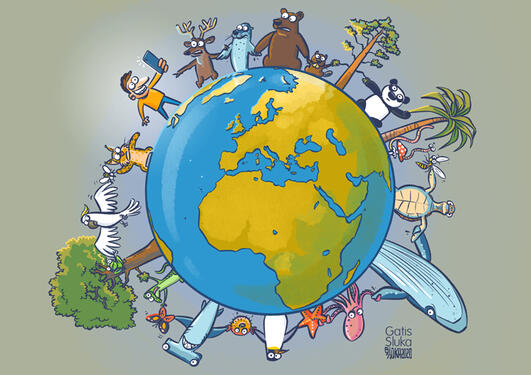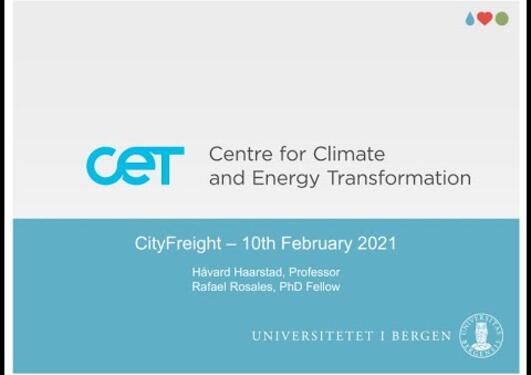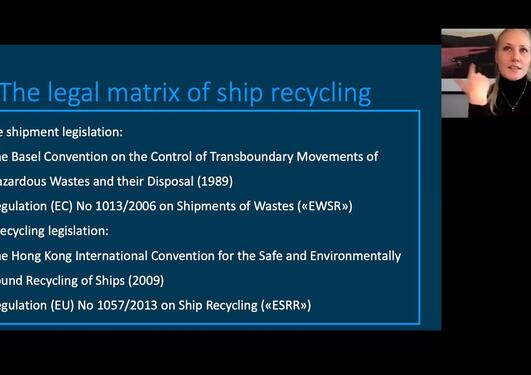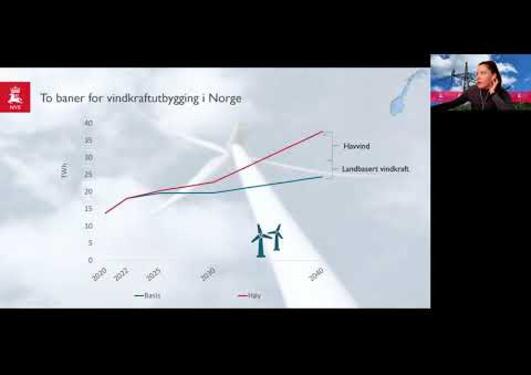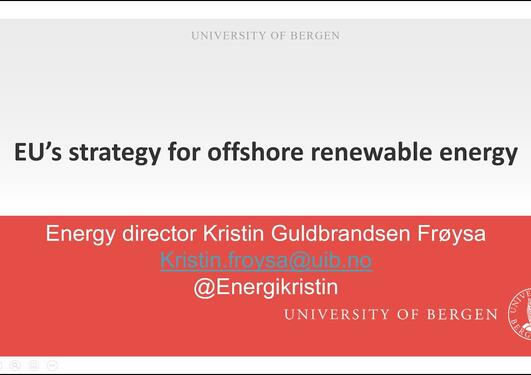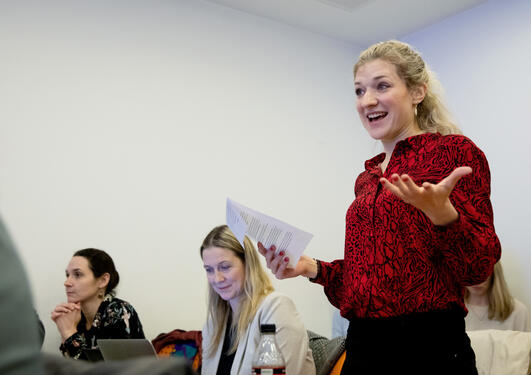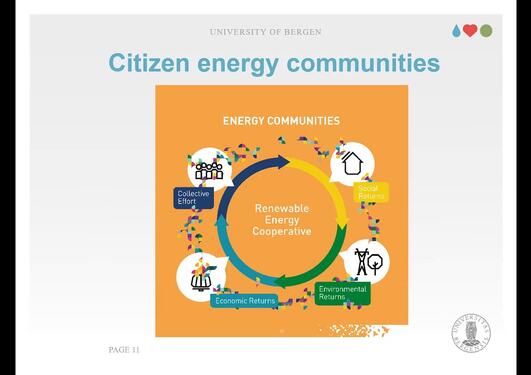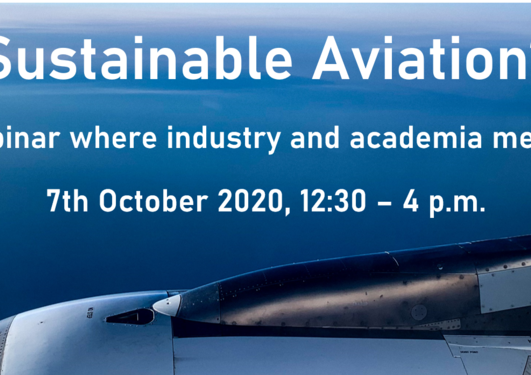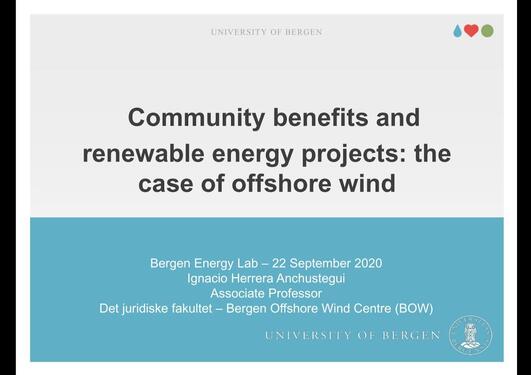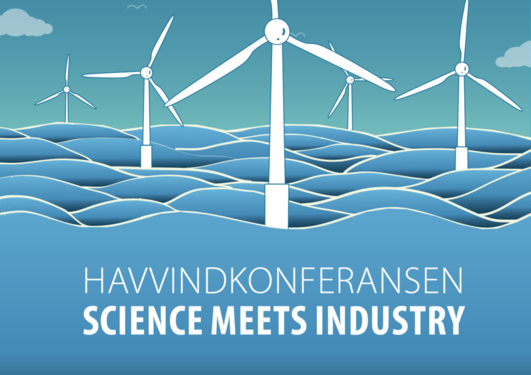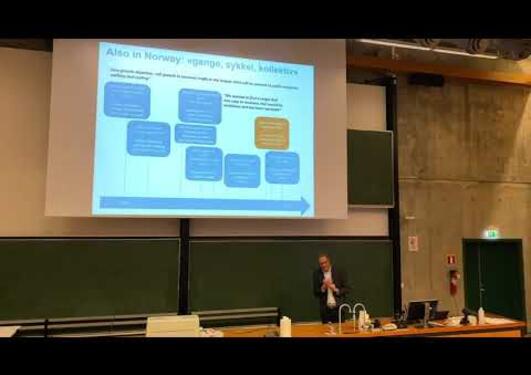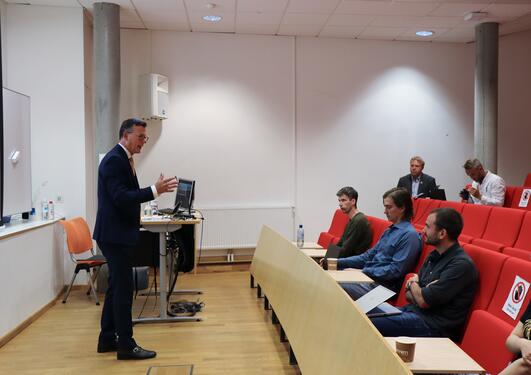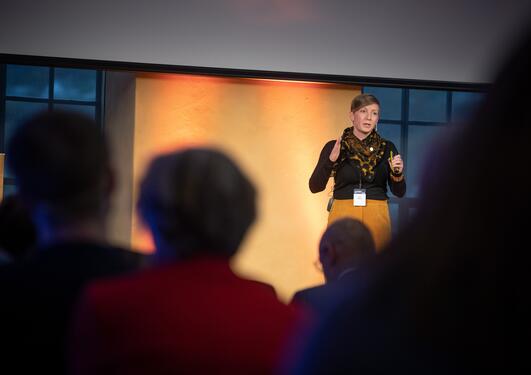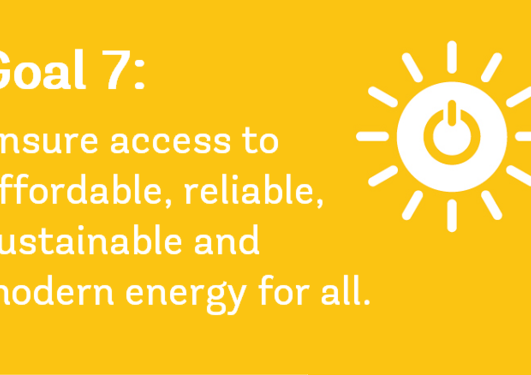News archive for Climate and energy transition
On World Wildlife Day 3 March 2021, the University of Bergen becomes the first Norwegian institution and first university worldwide to join the European Commission’s Global Coalition United for Biodiversity.
Watch Håvard Haarstad and Rafael Rosales presentation about sustainable logistics in Norwegian cities - the Cityfreight project here.
Ingvild K. Hoel will present her master thesis work. This presentation will analyse the compliance of (EU) Regulation No. 1057/2013 to the provisions of «the Basel Convention on the Control of Transboundary Movements of Hazardous Wastes» of 1989.
I langsiktig kraftmarkedsanalyse vurderer NVE utviklingen i kraftmarked frem mot 2040, for Norge, Norden og Europa. Se Silje Tellervo Jelsness, NVE, presentere deres hovedfunn her!
For this semester's first BEL webinar, Energy director Kristin Guldbrandsen Frøysa, UiB, will talk about EU’s strategy for offshore renewable energy.
At the Diplomacy 2.0 event, Joanna Siekiera from the University of Bergen spoke on the subject of water diplomacy as a field of science diplomacy.
A global alliance of leading climate research universities is urging the G20 countries to embrace a build back better strategy for the post-pandemic recovery. This includes prioritising net zero emissions and planning for a more circular economy.
The launch at the University Aula concluded with two large panels representing the diversity of scientific milieus tackling global challenges in Bergen. Together they will work to make Bergen the place of choice for students seeking knowledge and skills to help solve global challenges.
In this webinar we looked at flexibility challenges in the local electricity grids, potential solutions to these challenges, as well as features and implications of the regulatory framework that applies to the sector. Watch it here!
'Sustainable aviation?' was the third in a series of transport related half day seminars considers the topic of a more sustainable future for aviation Check out the presentations from the seminar here!
Watch here: Community benefits and renewable energy projects: the case of offshore wind (29.09.2020)
In this webinar Ignacio discussed different models of community benefits required by governments or voluntarily granted by companies concerning offshore wind projects, and discuss up to what extent the fact that wind farms are located more and more outside the coast might alter the traditional perception of community benefits for renewable energy projects.
Due to the recent developments in the COVID-19 situation in Bergen it was decided that there will be no physical conference in Bergen on 29 September 2020. The program for the Science Meets Industry conference will be split in two parts, with the first part being a webinar on Hywind Tampen!
Did you miss the Just Mobility Transitions (JUSTMOB) seminar on September 3rd? No need to worry!
Temperature in the Southern Ocean was more tightly linked to the extent of Antarctic glaciation during past greenhouse climates than previously thought.
NorRen Summer School invites participants from a wide spectre of disciplines, this year focussing on flexible energy systems.
A new initiative has been launched at the University of Bergen to strengthen critical thinking on the Sustainable Development Goals (SDGs) as part of the university's education.
Renewable energy - we conduct world-leading research and educate tomorrow’s scientists! (07.07.2020)
Historically speaking, energy usage and economic prosperity have been closely linked.
The world must become more energy efficient and in a few decades, we will have to switch from fossil fuel to renewable energy in order to reach our climate goals.
Pages
- November 2025 (1)
- October 2025 (2)
- June 2025 (1)
- April 2025 (1)
- March 2025 (4)
- February 2025 (2)
- January 2025 (1)
- December 2024 (1)
- November 2024 (3)
- October 2024 (5)
- September 2024 (3)
- August 2024 (1)
- July 2024 (2)
- June 2024 (3)
- May 2024 (1)
- March 2024 (1)
- February 2024 (2)
- January 2024 (2)
- December 2023 (2)
- November 2023 (3)
- October 2023 (6)
- September 2023 (4)
- May 2023 (1)
- April 2023 (5)
- March 2023 (3)
- February 2023 (5)
- January 2023 (10)
- December 2022 (5)
- November 2022 (1)
- October 2022 (1)
- September 2022 (3)
- August 2022 (2)
- June 2022 (2)
- May 2022 (5)
- April 2022 (3)
- March 2022 (6)
- February 2022 (4)
- January 2022 (4)
- December 2021 (3)
- November 2021 (5)
- October 2021 (6)
- September 2021 (2)
- June 2021 (5)
- May 2021 (6)
- April 2021 (4)
- March 2021 (3)
- February 2021 (2)
- January 2021 (2)
- December 2020 (2)
- November 2020 (2)
- October 2020 (2)
- September 2020 (4)
- August 2020 (2)
- July 2020 (3)
- June 2020 (3)
- May 2020 (1)
- April 2020 (2)
- March 2020 (1)
- February 2020 (1)
- November 2019 (2)
- October 2019 (3)
- September 2019 (1)
- August 2019 (2)
- July 2019 (5)
- June 2019 (1)
- May 2019 (1)
- March 2019 (1)
- February 2019 (5)
- January 2019 (1)
- December 2018 (4)
- November 2018 (1)
- October 2018 (1)
- September 2018 (2)
- August 2018 (2)
- July 2018 (2)
- June 2018 (3)
- April 2018 (1)
- September 2017 (1)
- November 2014 (1)
